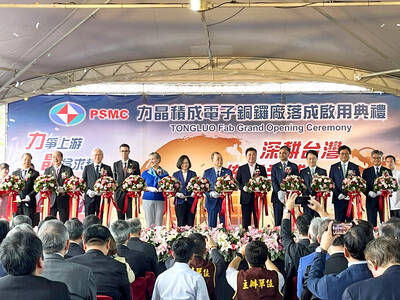Amazon.com Inc has given notice that it plans to file a lawsuit challenging the US Department of Defense’s decision to award Microsoft Corp a cloud-computing contract valued at as much as US$10 billion over a decade.
The e-commerce giant plans to lodge its complaint against the contract in the US Court of Federal Claims, Seattle-based Amazon confirmed.
A representative for the department said the agency would not speculate on potential litigation.
Oracle Corp is also mounting a legal challenge to the contract, known as the Joint Enterprise Defense Infrastructure (JEDI). It is designed to consolidate the department’s cloud-computing infrastructure and modernize its technology systems.
Amazon spokesman Drew Herdener said in a statement that the procurement was tainted by bias and evaluation deficiencies.
“It’s critical for our country that the government and its elected leaders administer procurements objectively, and in a manner that is free from political influence,” he said. “Numerous aspects of the JEDI evaluation process contained clear deficiencies, errors and unmistakable bias — and it’s important that these matters be examined and rectified.”
The department is grappling with dueling allegations that political interference might have helped or hurt Amazon’s chances of winning the contract.
Some lawmakers have questioned whether US President Donald Trump unfairly intervened in the process against Amazon. Trump has long been at odds with Amazon chief executive Jeff Bezos, who also owns the Washington Post.
Trump surprised the industry earlier this year when he openly questioned whether the contract was being competitively bid, citing complaints from Microsoft, Oracle Corp and International Business Machines (IBM) Corp.
A book by Guy Snodgrass, a speechwriter for former US secretary of defense James Mattis, alleges that Trump, in the summer of last year, told Mattis to “screw Amazon” and lock it out of the bid.
Mattis did not do what Trump asked, Snodgrass wrote.
Mattis has criticized the book.
US Department of Defense Chief Information Officer Dana Deasy said during his confirmation hearing late last month that, to the best of his knowledge, no one from the White House reached out to any members of the JEDI selection team.
Meanwhile, Oracle has alleged in court that former Pentagon employees with ties to Amazon might have structured the deal to favor Amazon.
Oracle is appealing a July ruling from the US Court of Federal Claims that dismissed its legal challenge to the contract. Amazon offered at least two former Pentagon officials jobs while they were working on the procurement, the lawsuit alleged.
The department last month awarded the contract to Microsoft, an upset victory for a company initially viewed as a distant second to Amazon in the market for cloud-computing services.
Amazon was also seen as the favorite for the deal because it won a lucrative contract from the CIA and had obtained higher levels of federal security authorizations.
Oracle and IBM waged a fierce lobbying and legal campaign over the decision to choose just one provider for JEDI, arguing it would imperil data and stifle innovation. Both companies were later eliminated from the competition.

ARTIFICIAL INTELLIGENCE: The chipmaker last month raised its capital spending by 28 percent for this year to NT$32 billion from a previous estimate of NT$25 billion Contract chipmaker Powerchip Semiconductor Manufacturing Corp (力積電子) yesterday launched a new 12-inch fab, tapping into advanced chip-on-wafer-on-substrate (CoWoS) packaging technology to support rising demand for artificial intelligence (AI) devices. Powerchip is to offer interposers, one of three parts in CoWoS packaging technology, with shipments scheduled for the second half of this year, Powerchip chairman Frank Huang (黃崇仁) told reporters on the sidelines of a fab inauguration ceremony in the Tongluo Science Park (銅鑼科學園區) in Miaoli County yesterday. “We are working with customers to supply CoWoS-related business, utilizing part of this new fab’s capacity,” Huang said, adding that Powerchip intended to bridge

Microsoft Corp yesterday said that it would create Thailand’s first data center region to boost cloud and artificial intelligence (AI) infrastructure, promising AI training to more than 100,000 people to develop tech. Bangkok is a key economic player in Southeast Asia, but it has lagged behind Indonesia and Singapore when it comes to the tech industry. Thailand has an “incredible opportunity to build a digital-first, AI-powered future,” Microsoft chairman and chief executive officer Satya Nadella said at an event in Bangkok. Data center regions are physical locations that store computing infrastructure, allowing secure and reliable access to cloud platforms. The global embrace of AI

RIDING AI WAVE: : Most of its NT$15bn capital budget would be spent on packaging technologies used in AI and HPC chips and advanced testing technology, it said Chip testing and packaging service provider Powertech Technology Inc (PTI, 力成科技) plans to increase this year’s capital expenditure by 50 percent to expand capacity to meet growing demand for advanced memorychips used in artificial intelligence (AI) products. The company proposed to spend NT$15 billion (US$460.94 million) to expand advanced capacity and equipment, compared with a budget of NT$10 billion it planned three months ago. “We are seeing a recovery in market demand as well as new business opportunities. We will spend heavily on advanced packaging” equipment, Powertech chief executive officer Boris Hsieh (謝永達) told investors on Tuesday. “We will focus on ramping

INFLATION WATCH: A rate hike in March would help keep inflation at 2.16 percent this year, although a weak currency and higher electricity rates are an issue, S&P said Moody’s Ratings and S&P Global Ratings have reaffirmed Taiwan’s sovereign credit ratings at “As3” and “AA+” respectively with a stable outlook on the back of high income and wealth levels, a strong institutional framework and robust external positions. The affirmations came as Taiwan’s economy is gaining momentum after quarters of slowdown induced by stubborn global inflation and monetary tightening. Taiwan’s strong fiscal and external buffers have improved relative to peers as evidenced by recent shocks linked to the COVID-19 pandemic and the ongoing US-China technology dispute, the two ratings firms said. “Taiwan stands as the epicenter of the global semiconductor supply chain, accounting